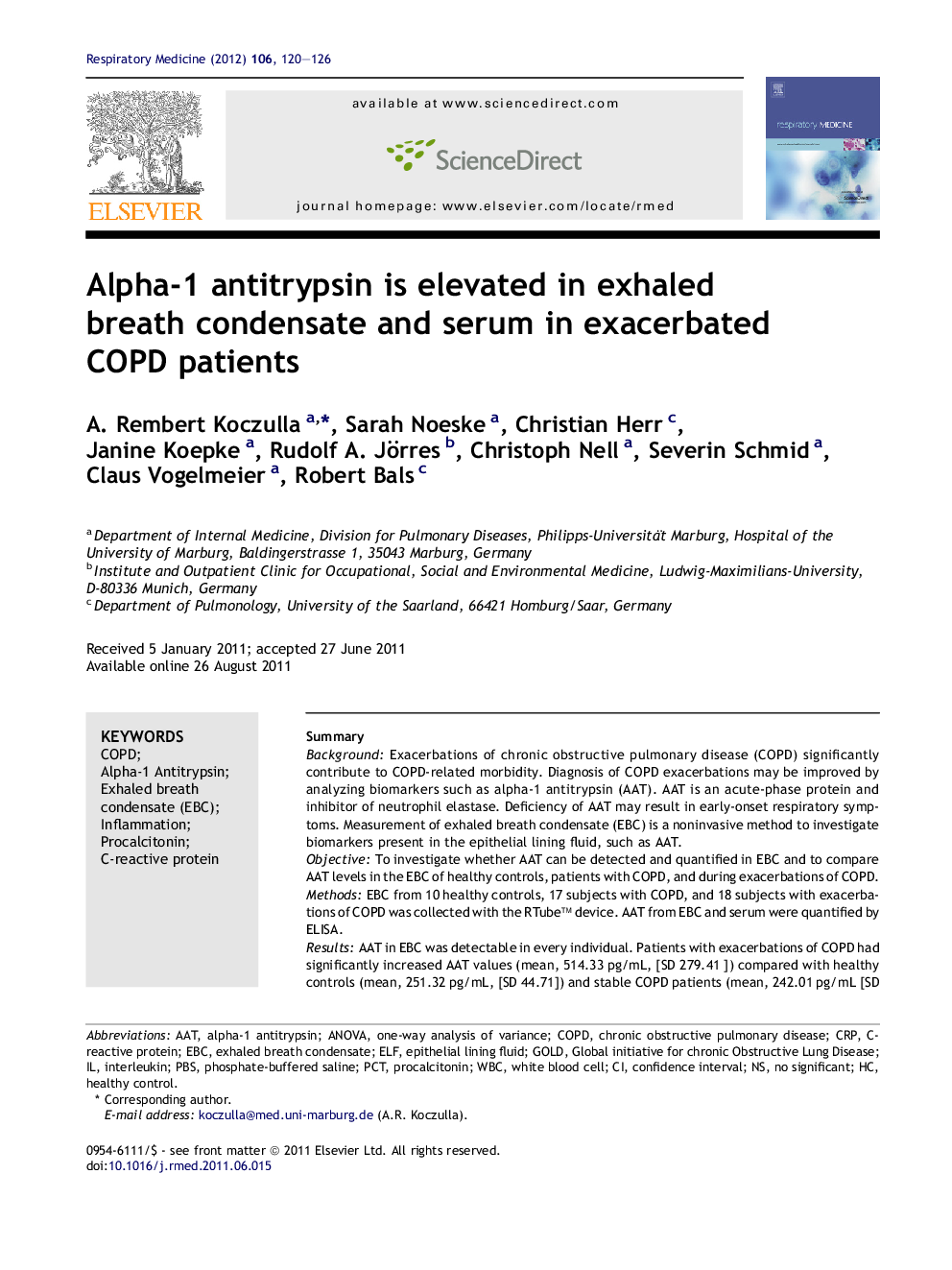| Article ID | Journal | Published Year | Pages | File Type |
|---|---|---|---|---|
| 6242478 | Respiratory Medicine | 2012 | 7 Pages |
SummaryBackgroundExacerbations of chronic obstructive pulmonary disease (COPD) significantly contribute to COPD-related morbidity. Diagnosis of COPD exacerbations may be improved by analyzing biomarkers such as alpha-1 antitrypsin (AAT). AAT is an acute-phase protein and inhibitor of neutrophil elastase. Deficiency of AAT may result in early-onset respiratory symptoms. Measurement of exhaled breath condensate (EBC) is a noninvasive method to investigate biomarkers present in the epithelial lining fluid, such as AAT.ObjectiveTo investigate whether AAT can be detected and quantified in EBC and to compare AAT levels in the EBC of healthy controls, patients with COPD, and during exacerbations of COPD.MethodsEBC from 10 healthy controls, 17 subjects with COPD, and 18 subjects with exacerbations of COPD was collected with the RTube⢠device. AAT from EBC and serum were quantified by ELISA.ResultsAAT in EBC was detectable in every individual. Patients with exacerbations of COPD had significantly increased AAT values (mean, 514.33 pg/mL, [SD 279.41 ]) compared with healthy controls (mean, 251.32 pg/mL, [SD 44.71]) and stable COPD patients (mean, 242.01 pg/mL [SD 65.74]) (P = 0.0003; P = 0.00003). EBC AAT showed only a correlation trend with serum AAT (r = 0.3, P = 0.054).ConclusionsAAT in EBC was detectable and quantifiable. AAT measured in EBC was significantly increased during exacerbations of COPD and can potentially be used as a biomarker in exacerbations.
